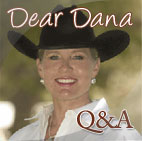Summer Sores
By Daniel H. Grove, DVM

Summer sores are a big problem for horses in climates that are warm and moist. We discussed them a few years ago, but I think it is time to revisit them. I am seeing them very frequently, and so are many other practitioners. Let’s delve into what they are, some treatment strategies and prevention.
Habronema and Draschia are the names of the nasty little parasites that causes this sometimes-challenging-to-deal-with disease. They are two of the stomach worms of horses. and in their normal life cycle, do not seem to cause much harm. When the parasite gets deposited in an area of the skin or other external area, they can wreak havoc. They cause a non-healing wound that often times increases in size. It can be bordered by a layer of scar tissue that makes it challenging to get drugs to the source of the problem to kill them off. Often times, small granules are associated with the lesions. If in doubt, a simple biopsy of the lesion can often diagnose the problem. This can be an important part of the diagnosis, as some lesion can mirror other problems.
Trail to a new home
A BLM adoption event is scheduled for June 21-23 in Napa — In this article, Amy Dumas shares details on the path from the range to the stable.
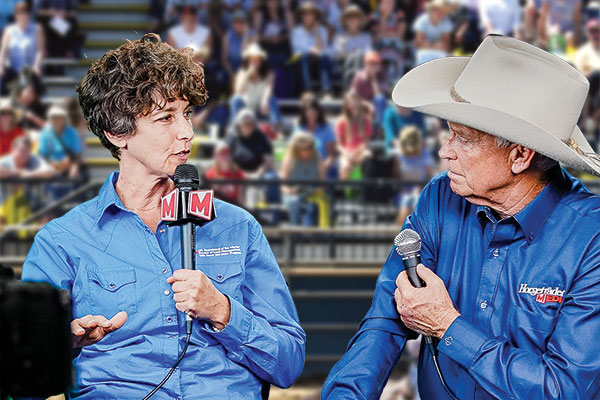
HT: What is the Bureau of Land Management’s function when it comes to wild horses and burros?
AMY: The BLM was tasked to manage the wild horses and burros by Congress in 1971 with the passage of the Wild Free Roaming Horse and Burros Act. With that, the Congress designated the Bureau of Land Management and the Forest Service of the USDA to manage wild horses and burros on the lands where they were found in 1971.
HT: And how’s that working for them?
AMY: We have been highly successful in protecting these animals. The Act protects the animals from capture, harassment, branding on the range, and a few other things. So, I think we’ve done a pretty good job of doing that.
Precautions after a wet winter
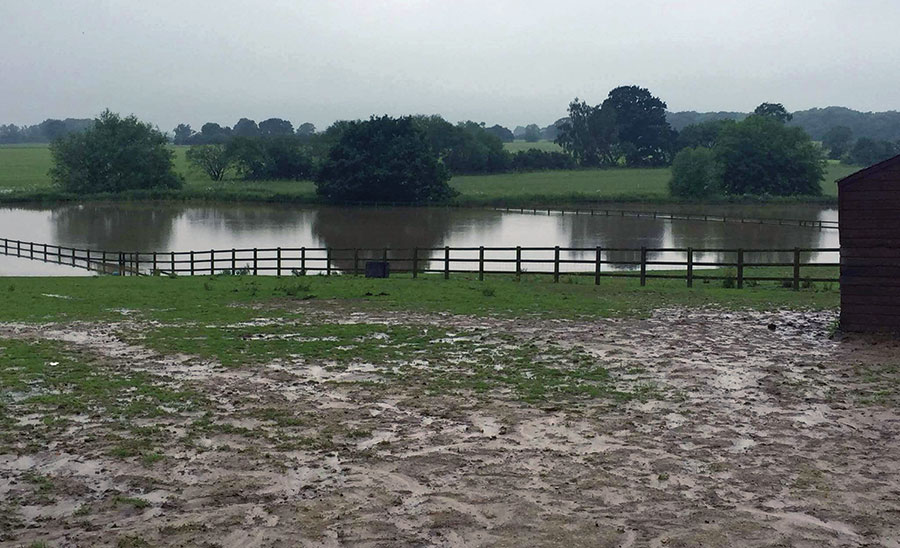
By Daniel H. Grove, DVM
This year has been an extra wet one for most of our country. Some of us have needed it badly and others, not so much. This month I think it is prudent that we discuss some conditions that may become more prevalent this year due to the extra moisture in our environments. If we take some extra steps in care and observation, pests can be minimized, diseases can be prevented, and extra veterinary bills can be avoided.
Flies
Flies are a huge nuisance to our livestock. They also can transmit some diseases. With all the added moisture to our environment, we are likely to see an increase in flies. Last year I wrote an article on methods of fly control. I discussed some good control measures including fly sprays, fly bait, feed through fly control and fly predators. If you are not already including these in your husbandry, it may be a good time to evaluate your situation and see if additional measures are warranted. One horse with a bad case of summer sores will definitely make you think twice about neglecting to control flies.
Trails are Common Ground
ELCR joins coalition launching nationwide trail etiquette campaign
Courtesy of ELCR.org
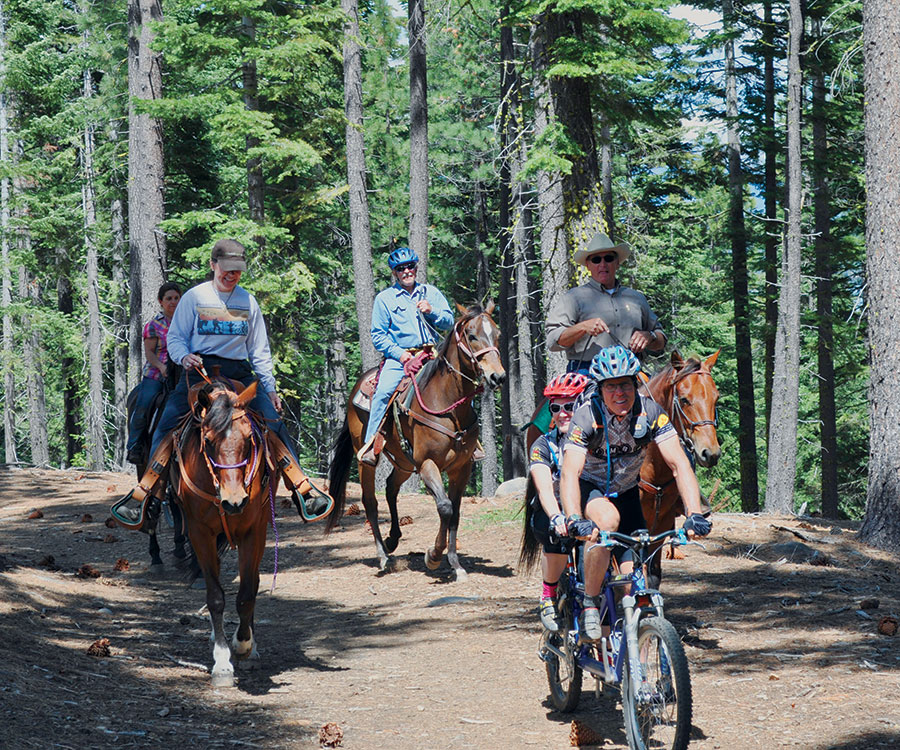
Any recreational trail user will tell you there are more people on the trails than ever before. At the onset of the COVID-19 pandemic in particular, automated counters at trail systems around the country recorded four times as many users compared to the same time frame in 2019.
Up to the Challenge
BURBANK — The region’s top reining horses and riders returned to the Los Angeles Equestrian Center Oct. 26-31 for The Challenge, California Reining Horse Association’s pinnacle event of the year. Warm weather greeted equally hot performances during the show.
It’s here! West Coast Ranch Horse Sale Nov. 6 in Temecula
From Horsetrader sales staff

An exciting horse sale on this fall’s calendar is the Nov. 6 West Coast Ranch Horse Rendezvous Sale at the beautiful Tucalota Creek Ranch. Managed by XIT Western Productions, this sale will bring 35 head of high-quality ranch horses that “are ready to be your next partner.” The sale will specialize in horses that are show-ready or are great ranch horse prospects. There is a consignor application process and a selection committee to ensure only the cream of the crop are offered. The sale will take place alongside a series of events over the 2021 WCRH Rendezvous weekend Nov. 4-7. As for the show, the WCRH Rendezvous will include ranch horse clinics with Sami Hernandez, Cowley Performance Horses and others, a two-day ranch horse show, ranch horse futurities, a silent auction, wine and cheese reception, vendors, and a banquet dinner with live cowboy music from Eric Gorsuch. There will be a saddle awarded to the Top Hand of the weekend, division buckles, trophy knives, trophy stirrups and more! The sale preview will be held with the wine and cheese reception at 5 p.m. on Friday, Nov. 5, and the sale will take place at 4 p.m. on Saturday.
Hite gets it right
$100,000 Interactive Mortgage “Ticket To Ride” Grand prix concludes series

SAN JUAN CAPISTRANO — Laura Hite and Calypso VD Zuuthoeve put the final exclamation point on an exciting season at Blenheim EquiSports with victory in the $100,000 Interactive Mortgage “Ticket to Ride” Grand Prix on Sept. 25.
Saddling up in San Marcos
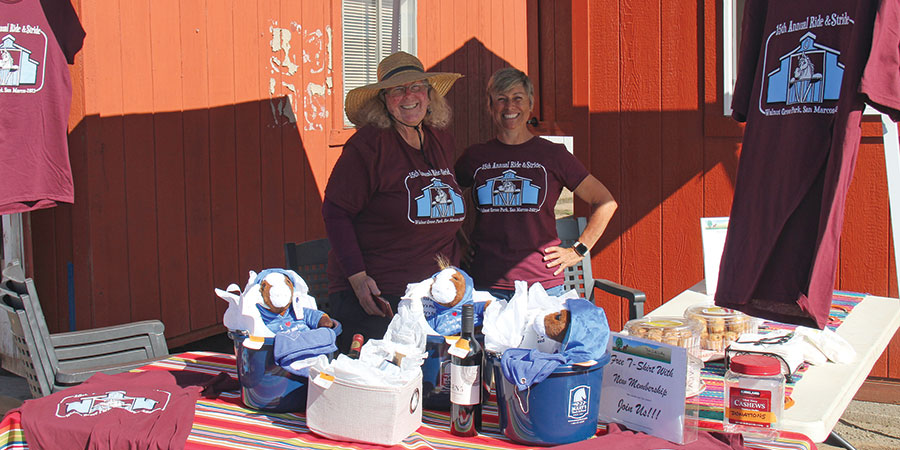
The Twin Oaks Valley Equestrian Association in conjunction with the Horse Heritage Conservancy brought together current — and future — equestrians to the 15th Annual Ride & Stride Oct. 17 at Walnut Grove Park in San Marcos. The event encouraged the “two-legged” contingent to join in and bring their other best friend to stride a three-mile loop through the valley on City of San Marcos trails. Participation in this event helped the Walnut Grove Equestrian Park, a rare gem in the heart of the Twin Oaks Valley.
Connection
By Sheryl Lynde | Horsetrader columnist
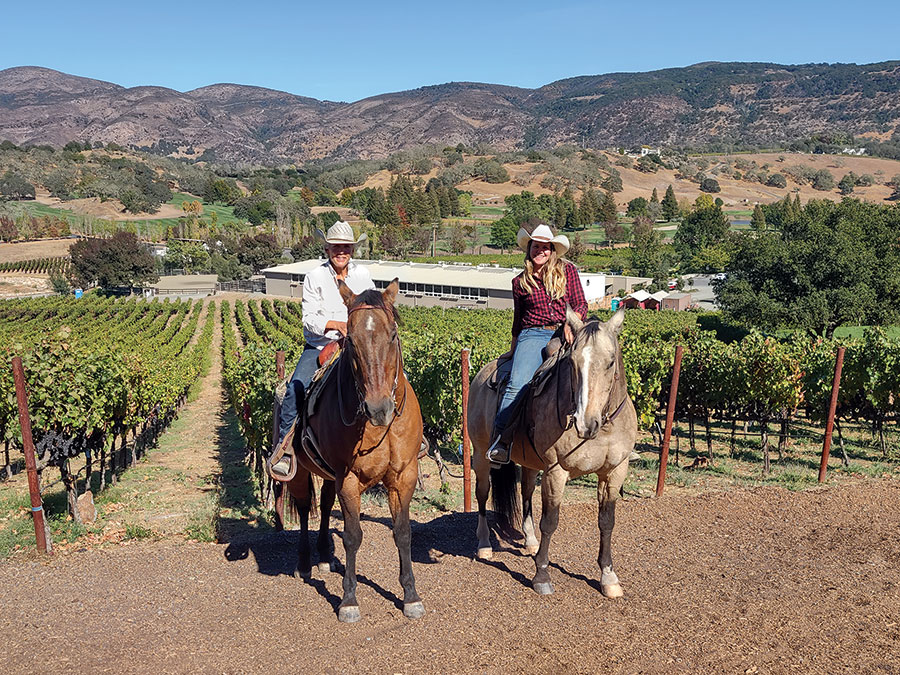
I don’t know you, and you don’t know me.
We dress differently, we are of different ages, different backgrounds and reside in different states and countries. But for a moment, just a glimpse in time we can find a commonality. I know a place where we can connect and share a space together as we ride on the back of a horse.
Season of success
SCRCHA wraps up super 2021 at Green Acres Ranch event
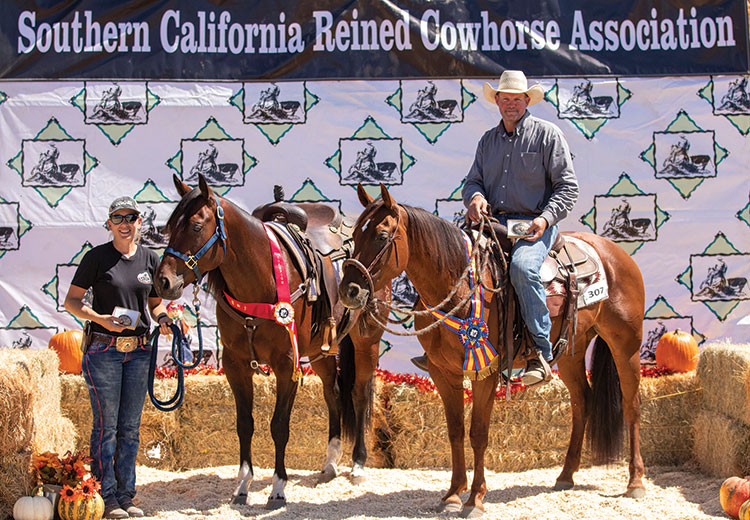
TEMECULA — Smiles, great runs and beautiful weather were all part of the Southern California Reined Cow Horse Association’s final scheduled show of 2021, the September Classic.


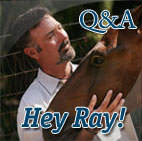
 Read Columns
Read Columns
